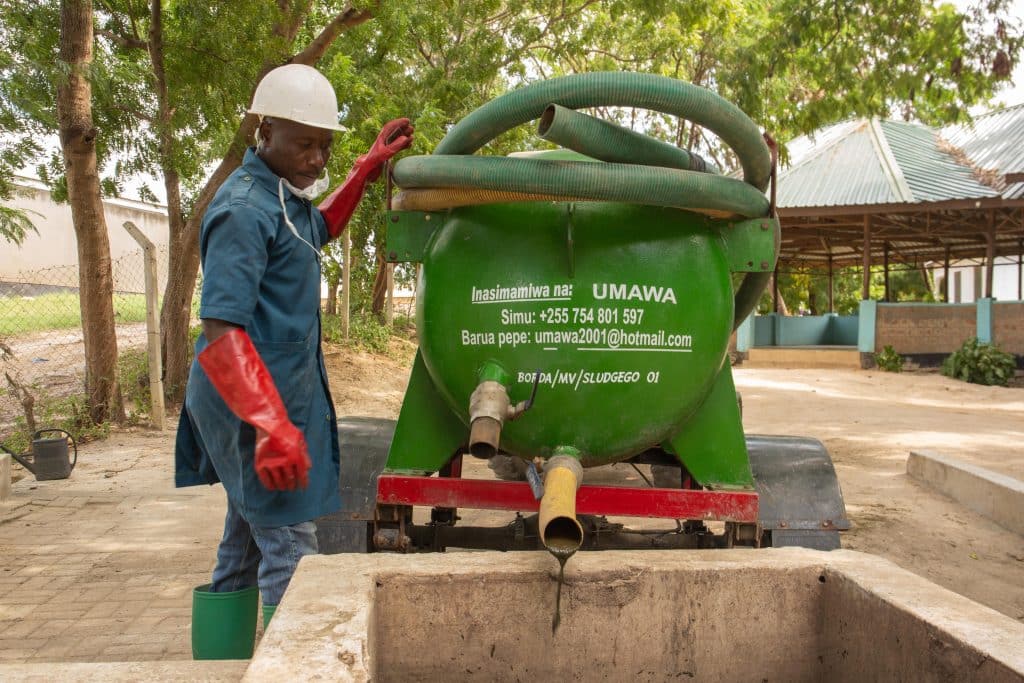Manual and mechanical emptying workers and emptying companies are on the front line of the faecal sludge management chain in Burkina Faso. With little or no training, they are often exposed to incidents and diseases. To remedy this, the National Water and Sanitation Office (ONEA) of Burkina Faso recently equipped 81 emptying workers to handle this waste. The public company received support from the African Water Association (AfWA) for this project.
The training took place in two phases, from 24 April to 6 May 2023 in the cities of Bobo-Dioulasso and Ouagadougou. The 81 young people trained are now able to collect, transport and store faecal sludge safely.
Towards the professionalisation of the faecal sludge sector
The 81 emptiers have also been equipped to manage personal protective equipment, and educated about safety at work and the health risks associated with their job. The sludge treatment companies received more formal training, particularly on administrative and financial management.
All of the actions implemented are part of the “Capacity Building for Faecal Sludge Actors” project, financed to the tune of 52 million CFA francs (approximately ‘79,300) by the Bill and Melinda Gates Foundation. “The aim is to move towards the professionalisation of the faecal sludge collection and transport sector, which is a very important link in the sanitation value chain. We want the structures and people involved in this sector to master the contours of their profession, and to behave in a civic manner in order to get good press from the population,” explains Valentin Yao, head of training at AAE.
Read Also – Urban sanitation, a major challenge for sustainable cities in Africa
In addition to improving performance in the management of faecal sludge in Burkina Faso, this project will protect the emptiers who handle faecal sludge on a daily basis, with very high risks of transmitting excreta-related diseases. The professionalisation of the sewage system will also reduce open defecation by increasing the number of latrines in the country. In 2020, 40% of Burkinabè still practiced open defecation, according to the World Bank.
Inès Magoum
